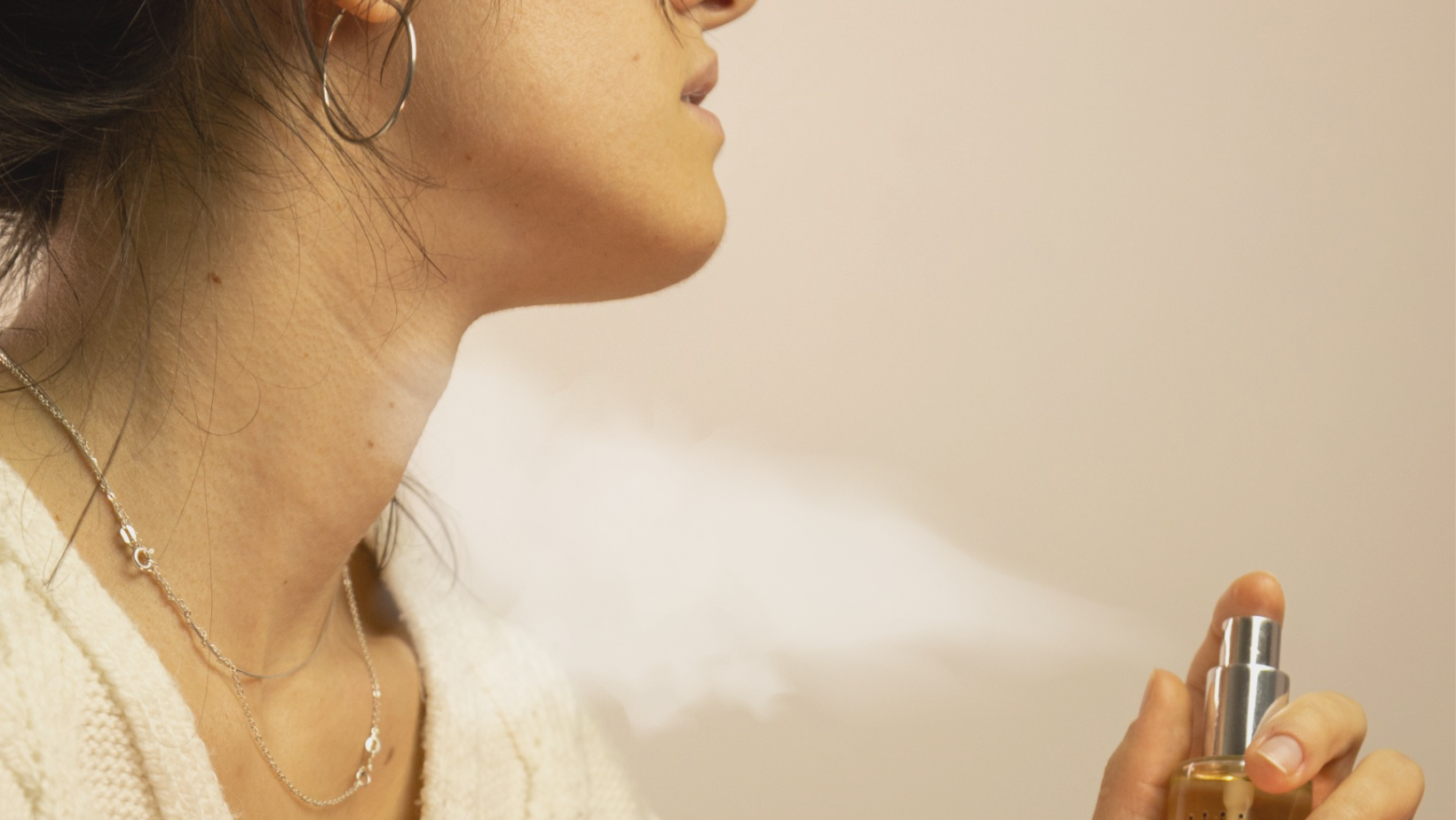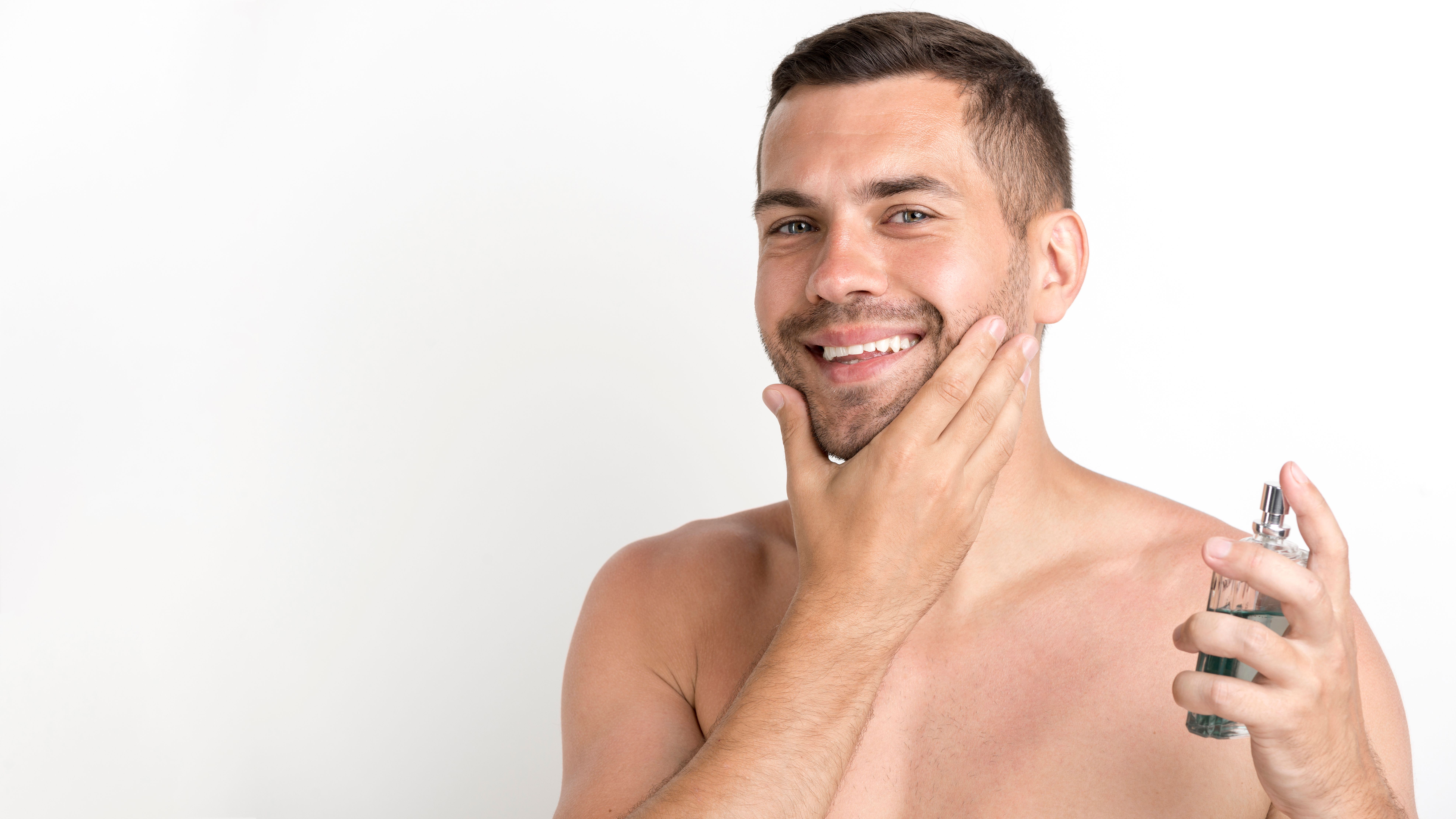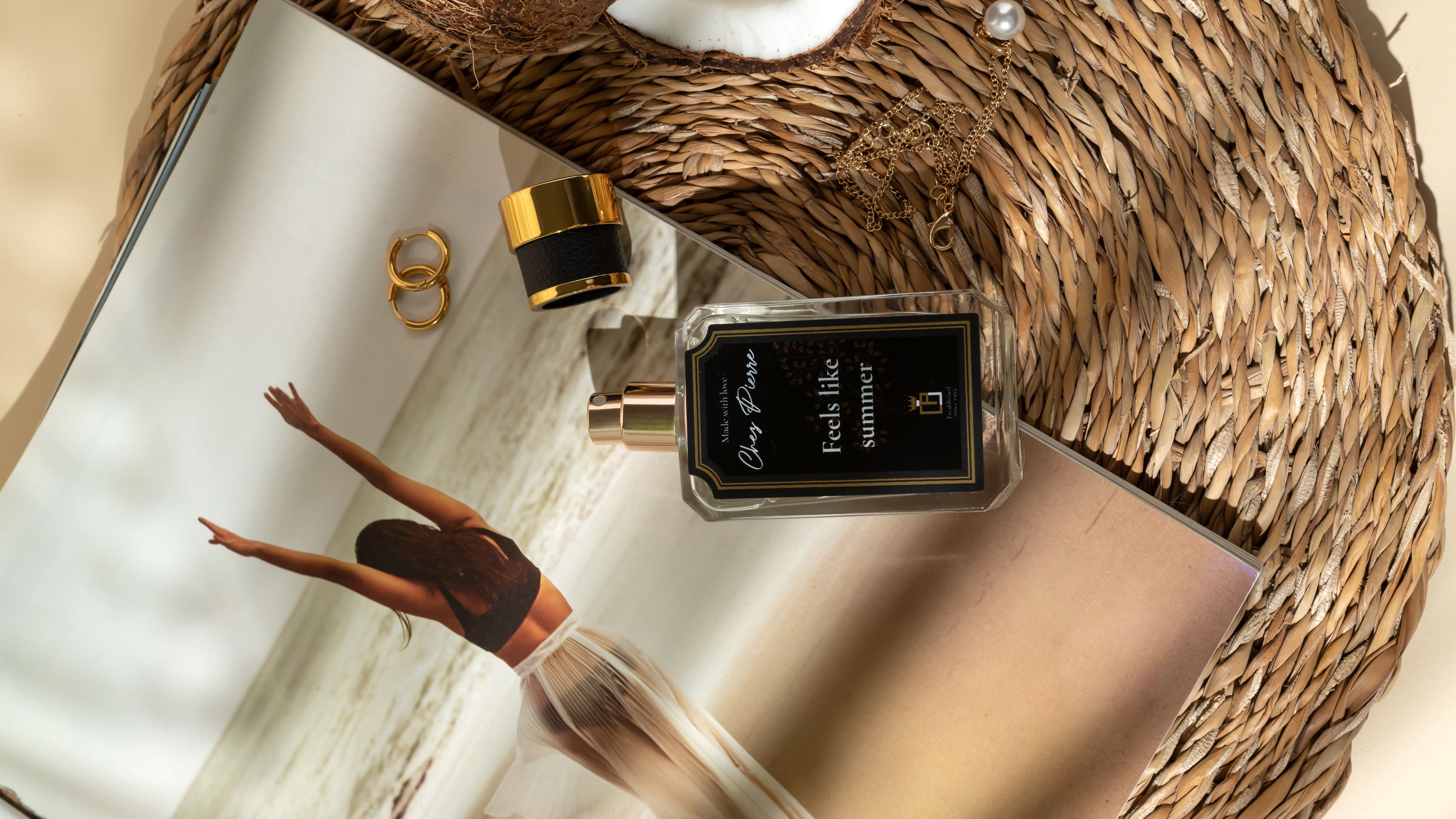
Spritz Wisely: A Comprehensive Guide on Where to Spray Perfume
Learn where to apply perfume for maximum impact, why some areas are better than others, and tips for different environments.
Perfume is more than just a fragrance.
It's an extension of your personality, an invisible trademark that makes you unforgettable.
Knowing how to apply perfume for maximum effect can be a bit of a mystery.
In fact, intensity and sillage mostly decide whether your perfume whispers or shouts.
But, where to spray perfume to get a long-lasting scent that stands out in a crowd?
Chez Pierre will spray the word!
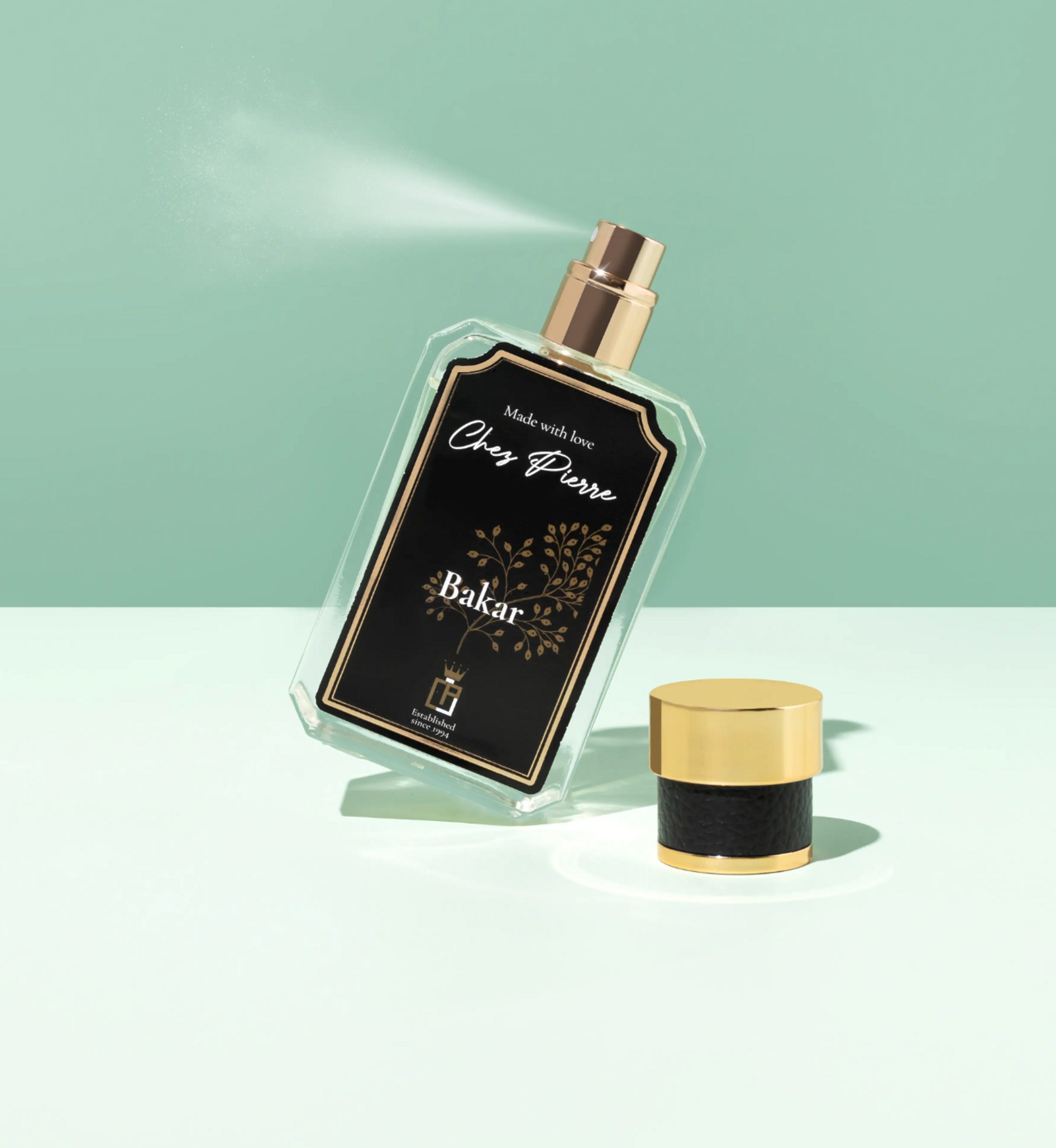
Top 5 Spots Where You Should Spray Perfume
You've got your favorite fragrance in hand, but where should you spray it? Be aware of the term "pulse points" - these are the areas on your body where the blood vessels are closest to the skin.
Because of the warmth in these areas, they're perfect for making your scent more diffusive. Here are the 5 pulse points where you should spray perfume.
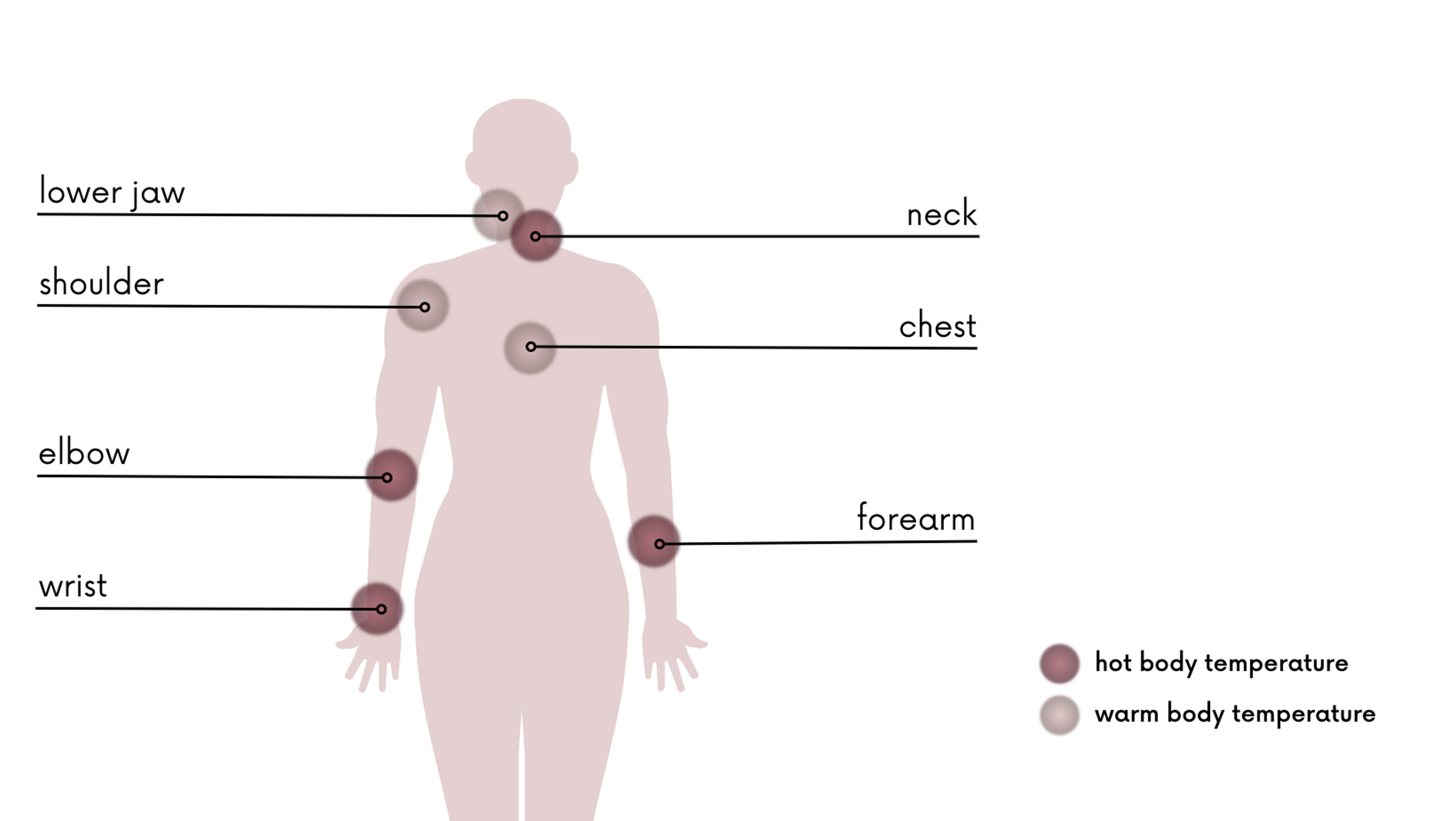
1. Wrists
Your wrists are like perfume billboards situated at the crossroads of your body. Every gesture and movement can waft the scent of those around you, creating a subtle aura of your chosen fragrance.
However, after spraying, let the perfume naturally settle. Rubbing wrists can alter the scent's top notes.

2. Neck
Your neck, especially the base near your collarbone, is a hotspot of warmth. When perfume is applied here, it naturally rises, allowing those close to you to appreciate the full spectrum of its notes.

3. Behind the Ears
The skin behind your ears is particularly thin, making it another perfect pulse point. Just a dab here can create an intimate experience, especially when someone leans in for a hug or a whisper.

4. Inside the Elbows
An unexpected but effective spot, the insides of your elbows can retain the scent for longer because they don’t experience as much airflow, preventing the fragrance from evaporating quickly.

5. Back of the Knees
Especially for those summer days when you're showing a bit more skin, this spot is essential. As you move, the scent flows upwards, creating a gentle trail of fragrance.

Spraying on Skin or Clothes - Where Perfumes Reflect Better
Ever wondered why a perfume might smell divine on your friend but slightly different on you?
It's all about chemistry. Each option offers its own unique sensory experience, influenced by an array of factors from body chemistry to fabric type.
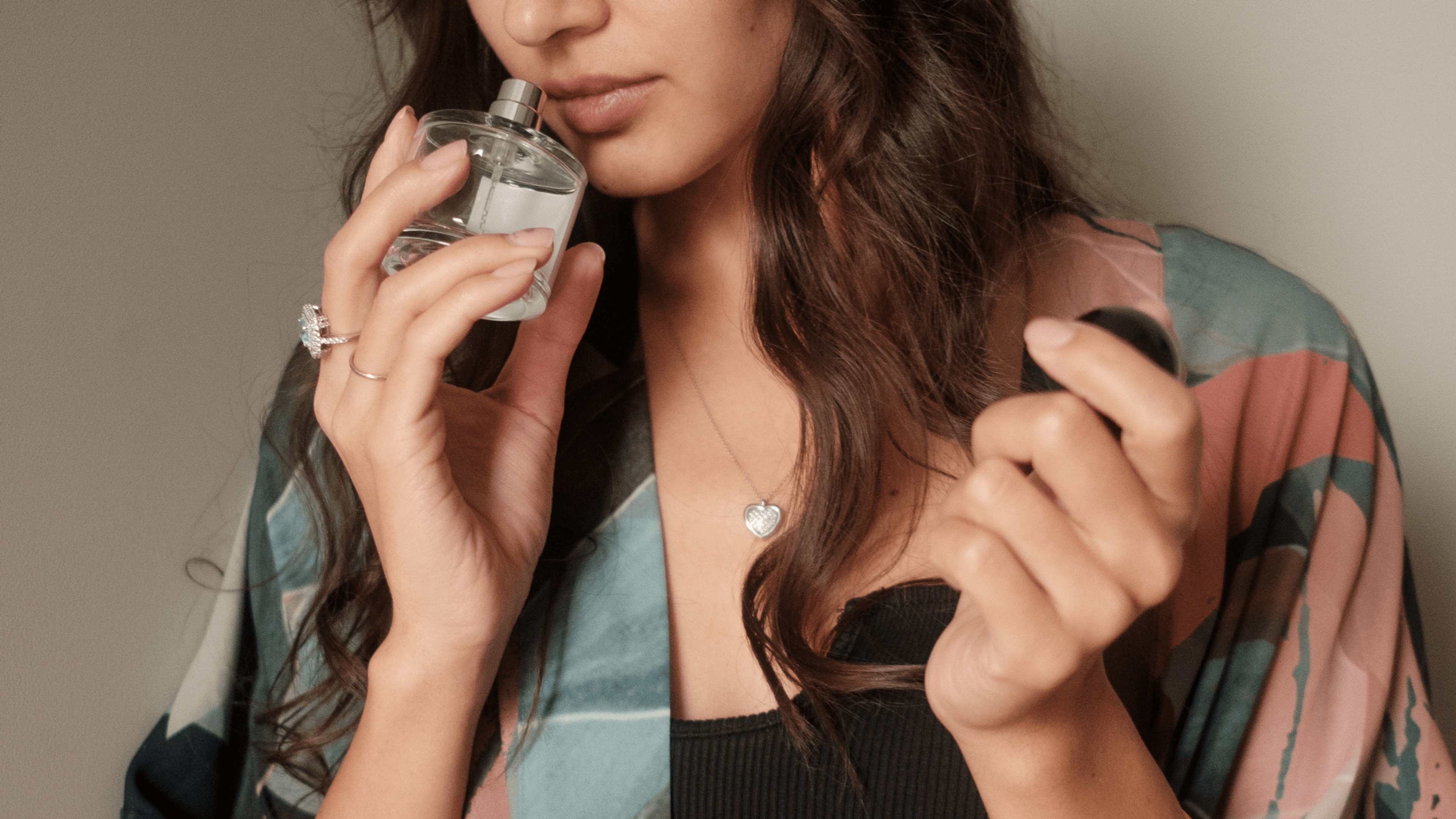
Spraying On the Skin
When you spray perfume directly on your skin, you're inviting it into a personal dance with your body's natural oils and pH levels. This creates a scent profile that is uniquely yours.
Your body heat activates the different notes in the perfume, allowing it to evolve and become a complex, multi-layered aroma that's specific to you.
Hold the bottle about 5 to 7 inches away from your skin. This distance allows for a fine mist to cover the area, evenly distributed.
Usually, 2-4 sprays will be enough for a pleasant smell. You may find more details in our How to Apply Perfume article.
The skin's natural acidity can sometimes distort a fragrance, especially if you have particularly oily or dry skin.
If you're planning on a sun-soaked day at the beach, be careful; some ingredients in perfumes can react adversely to sunlight, leading to skin irritation.
Spraying On Clothes
Fabric can act like a blank canvas for your perfume, capturing the scent in its purest form. A spritz on your favorite scarf or coat can make the scent last all day, and perhaps even longer.
Cloth fibers can trap the molecules of the fragrance, making it linger far longer than it might on your skin. It's also worth noting that some perfumes might stain, so always spray from a distance.
So, what's better? For a fragrance that evolves with you, the skin wins hands down. For longevity and a scent that stays true to its original formulation, clothes are your best bet.
But why limit yourself? Be the maestro of your own aromatic symphony by using our perfume dupes!
Unusual Places for Applying Perfume
In the pursuit of the perfect scent trail, why stick to the beaten path?
Your body is a canvas, and there's a whole lot of space to create your aromatic masterpiece.
Let's explore some unusual spots to spritz.
Hair: Spraying perfume on your hair can create a lovely, enveloping aura as your tresses move. However, alcohol in perfume may dry your hair out, so aim for the ends rather than the roots, or use a fragrance specifically formulated for hair (like hair mist or hair oil).
Chest and Torso: These areas might not be traditional pulse points, but they do emit heat, helping to diffuse and amplify the scent. Just be cautious if you have sensitive skin or are wearing fabrics that might react adversely to the perfume.
Do Not Spray Fragrance on These Arias
- Armpits: This skin area is generally more sensitive and prone to irritation. The natural scent of sweat and deodorant can distort and clash with the fragrance, creating an unpleasing aroma.
- Eyes and Face: The sensitive skin around these areas can react adversely to perfume. Plus, the alcohol content can be irritating if it comes in contact with the eyes.
- Open Wounds or Cuts: Applying perfume on broken skin can not only sting but may cause irritation and slow down the healing process. Avoid spraying on freshly shaven or waxed areas, as the alcohol content might cause irritation.
- Close to Genitals: The skin in this area is highly sensitive and mucous membranes are present, making it prone to irritation, itching, or even a burning sensation.
- Directly On Jewelry: Especially true for costume jewelry, perfume can tarnish or discolor the metal and even affect the quality of gemstones.
- Plastic and Leather Accessories: The alcohol and oils in perfume can degrade the quality of certain materials, ruining your favorite items.
Spraying Perfume on Male vs. Female- Is There Any Difference?
Do men and women need to approach perfume application differently?
You might be surprised to learn that, while marketing and fragrance design often differentiate between 'masculine' and 'feminine' scents, the real distinction lies in individual body chemistry rather than gender. Here’s how:
The same fragrance can smell entirely different on two people, regardless of gender. That’s because your skin’s pH levels, temperature, and natural oils interact with the fragrance to create a scent that's uniquely you.
Men in Western cultures are often advised to stick to ‘masculine’ application zones like the chest or jawline, while women frequently aim for the traditional pulse points like the wrists and neck.
Yet, these norms are rapidly evolving, and there's a growing acceptance of gender-neutral fragrances and application methods.
Is there a difference in perfume application between men and women? The answer is both; yes and no.
Yes, because societal norms and sensitivities can guide our choices and methods.
No, because, in the end, it's your individual chemistry that holds the magic wand, dictating the final scent regardless of gender.
Spraying Perfume in Various Places
Environments play a big role in how a scent is perceived. Here's how to get the best out of your perfume in various places:
- Cars can trap scents. Spritzing your car's headrest or under the seats can keep it smelling fresh. However, avoid direct sunlight as it can deteriorate the perfume's quality.
- Airplane cabins are dry, which can make your skin less receptive to scents. A solid perfume dabbed on pulse points can be your best travel companion.
- Room: A couple of sprays into the air or on curtains can give your room an inviting atmosphere. For a subtler approach, spray on potpourri or dried flowers.
- Outside: Environmental factors like wind, temperature, and humidity can impact how the fragrance behaves. Wind can disperse the scent more quickly, reducing its longevity. Heat can intensify the aroma but may also cause it to fade faster.
How to Make Your Perfume Last Longer
We have already talked about How to Make Your Perfume Last Longer in detail. Here is a brief overview:
- Moisturize: Dry skin doesn't hold fragrance well. Take a shower in the morning. Attach neutral moisturizer or body lotion before wearing perfume. The oils in the moisturizer will latch onto fragrance particles, helping to extend their lifespan.
- Layering: Use a body wash and lotion that match your fragrance. If these aren't available, stick to unscented options.
- Target Pulse Points: These are the warm areas of your body, and warmth helps diffuse and amplify the aroma. Pulse points include your neck, wrist, and behind your knees.
- Avoid Rubbing: Contrary to popular belief, rubbing your wrists together after spraying can actually break down the fragrance, making it fade faster.
- Reapply Wisely: Aim to do so in the same places you initially applied the fragrance, rather than adding new spots into the mix. Too many spritzes in different places can create a confusing, overwhelming scent.
- Store Properly: Keep your perfume in a cool, dark place and avoid storing it in your bathroom, as fluctuating temperatures can affect the quality.
With the right application spots, perfume ratio, knowing your skin type, and awareness of outdoor elements, you can maximize your perfume's longevity and impact.
How To Smell Good
Why Are Perfumes Expensive
How to Apply Cologne
Types Of Perfume
Eau de Parfum
Eau de Toilette
Eau de Cologne
Eau Fraiche
How to Make Perfume Last Longer
Where to Spray Perfume
How Is Perfume Made?
Best Niche Fragrance Houses and Perfumes
- How To Smell Good - The Best Expert Advice You Will Ever Get
- Best Ways to Apply the Cologne-According to Our Cologne Experts
- How Many Types of Perfume Actually Exist?
- From Morning Mist to Evening Echo: 12 Hacks to Empower Your Scent Presence
- Price Beyond Fragrance: Demystifying the Factors Behind Luxury Perfume Costs
- Essential Components: How Perfume is Created From Scratch
- Perfume Celebrities: Meet The Most Famous Perfume Brands In The World
